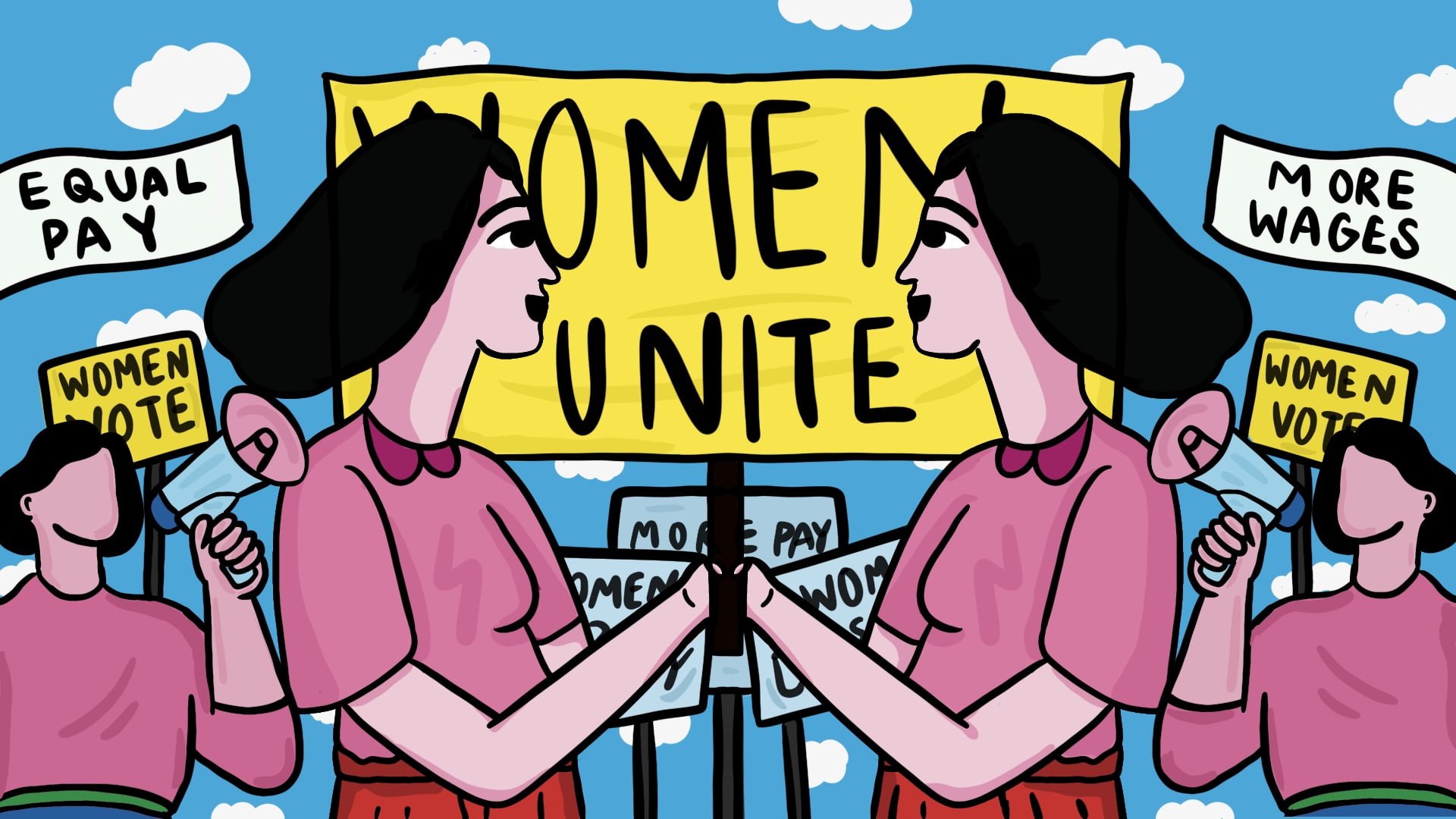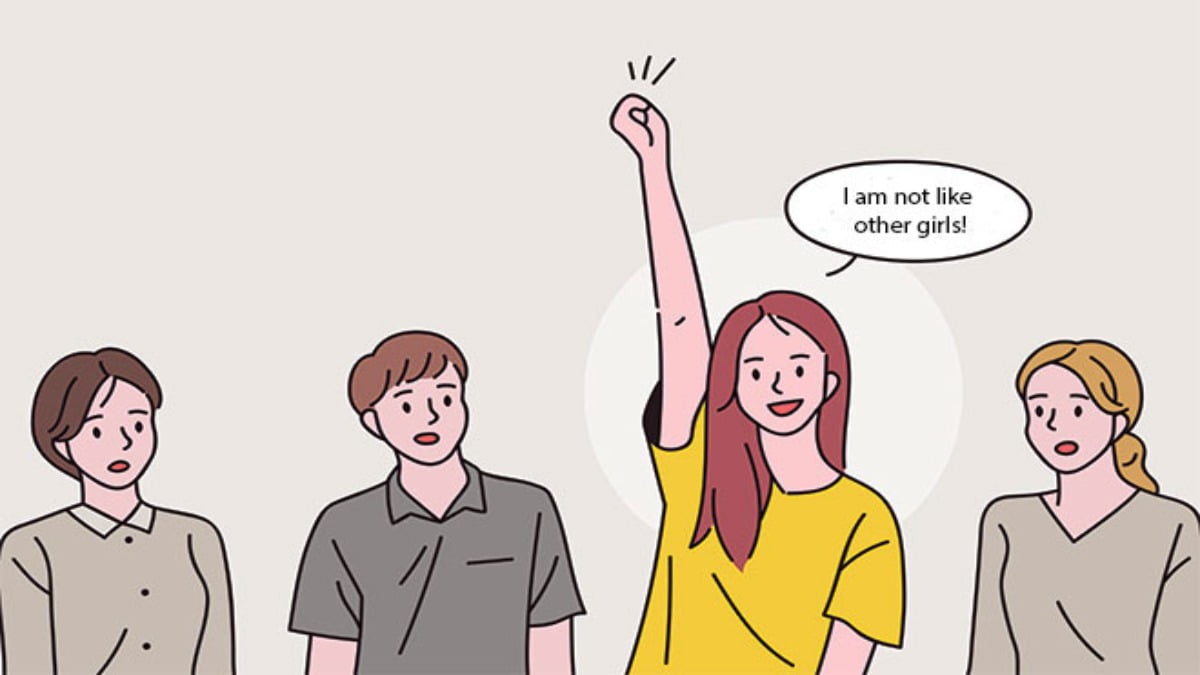In a world shaped by old-fashioned ideas about what is “for girls” or “for boys,” women have often found themselves navigating a complex web of expectations and stereotypes. These stereotypes, which are reinforced by a patriarchal society, have led to the emergence of a type of women whom some prefer to call call “pick me girls”. These women and girls are individuals who adopt interests and behaviours which they think will make them more attractive to the other sex.
A lot of the time this “pick me” behaviour manifests itself through a rejection of all feminine things, in order to be seen as a “cool girl”. A stereotypical “cool girl” is a girl who enjoys sports, hates the colour pink, loves to hang out with only men, and is easy-going and desirable.
In this desperate bid to be more acceprable, attractive and appealing to men, some “pick me” women might end up downplaying their own achievements, interests, or independence. It is almost as if they are trying to fit into the outdated image of what society expects from them, all because they have been taught that this is what makes them attractive. A lot of the time this “pick me” behaviour manifests itself through a rejection of all feminine things, in order to be seen as a “cool girl”. A stereotypical “cool girl” is a girl who enjoys sports, hates the colour pink, loves to hang out with only men, and is easy-going and desirable.
“Pick me” behaviour is deeply rooted in patriarchal conditioning and internalised misogyny. It reflects a complex interplay of societal factors and psychological mechanisms that drive women to adopt attitudes and behaviours aimed at gaining male approval. Patriarchal conditioning is the process through which individuals, both men and women, internalise regressive societal norms and values that reinforce traditional gender roles. In a patriarchal society, men are often encouraged to exhibit certain behaviours and preferences, while women are expected to conform to a different set of standards. These standards have been ingrained in our culture for generations and continue to influence how individuals perceive their roles and identities.
Internalised misogyny refers to the acceptance, internalisation and propagation of these patriarchal norms by women themselves. It’s the internalisation of societal messages that suggest that men’s interests and perspectives are more valuable and important, and that women should strive to align with these ideals. Women who exhibit “pick me” behaviour may do so because of their internalised misogyny; they have absorbed the belief that their worth is tied to how well they can meet traditional male expectations. Women may downplay their achievements, intelligence, or talents in the presence of men. They do this to appear non-threatening, less intimidating and to avoid being perceived as competitive, which could supposedly make them more appealing to men. This self-effacement can be detrimental to their personal and professional growth. In some cases, “pick me” girls’ distance themselves from traditionally feminine interests and activities such as enjoying fashion, makeup, or romantic comedies. They believe that by doing so, they align better with masculine ideals and appear more desirable.
Some women may go to great lengths to compete for male approval, even if it means undermining other women.
Competing for male approval is another facet of “pick me” behaviour. Some women may go to great lengths to compete for male approval, even if it means undermining other women. This behaviour can manifest in various ways, right from participating in “locker room talk” to undermining female colleagues in male-dominated workplaces. In certain situations, women may adopt submissive behaviour in relationships, believing that it is more attractive to men. This can lead to unequal power dynamics, making it difficult for these women to assert themselves or maintain their independence.
The literature around us lacks a comprehensive understanding of the factors contributing to the emergence of “pick me” girls in our society, primarily due to the multifaceted nature of their causation. Many women want to be accepted and valued by the society they live in. In a patriarchal culture, this often means conforming to traditional gender roles. The fear of being rejected by potential partners or peers can drive individuals to adopt behaviours they believe are more appealing to the other sex. Media, including movies, television shows, and advertising, often perpetuates gender stereotypes. Women see certain behaviours and appearances being promoted as ideal on screen, and then they internalise these messages. Some women may not even realise they are engaging in “pick me” behaviour because it has been so deeply ingrained in societal norms.
Women may feel pressured to conform to the expectations of their friends or social circles, which can further reinforce these behaviours. Low self-esteem and insecurity can lead individuals to adopt behaviours they believe will make them more likable, even if it means compromising their true selves. These behaviours have several negative consequences for women, society, and gender equality. Women who engage in “pick me” behaviour often devalue their own worth and interests, thereby perpetuating a cycle of low self-esteem. These behaviours reinforce traditional gender stereotypes, which can be harmful to both men and women. They limit personal freedom and potential for growth.
Learning about feminism and gender equality can help women understand the societal forces at play and empower them to challenge stereotypes
Learning about feminism and gender equality can help women understand the societal forces at play and empower them to challenge stereotypes. Building supportive networks of friends and mentors who uplift and validate each other can counteract the isolating effects of “pick me” behaviour. Women should practice assertiveness in their relationships, workplaces, and personal lives. It is essential to communicate needs, wants, and boundaries in a healthy manner. Developing media literacy skills can help individuals critically analyse and question the messages they encounter in the media. Advocating for gender equality not only benefits women but also creates a more just society for all.

“Pick me” behaviour is a multifaceted and deeply ingrained phenomenon rooted in the intersection of patriarchal conditioning and internalised misogyny. It reflects the response of some women to societal pressures and the desire for acceptance, which drives them to adopt attitudes and behaviours aimed at gaining male approval. This behaviour is complex, as it can vary across individuals and is influenced by factors like race, class, and sexual orientation, making it important to consider intersectionality in the analysis.
Additionally, “pick me” behaviour evolves with changing societal standards and is influenced by media and cultural shifts, requiring women to adapt continually. Recognising and challenging these behaviours is crucial for the empowerment of women and the advancement of gender equality, as it involves breaking free from the constraints of patriarchal norms, fostering self-worth, and building supportive networks that promote solidarity and equal rights for all.






